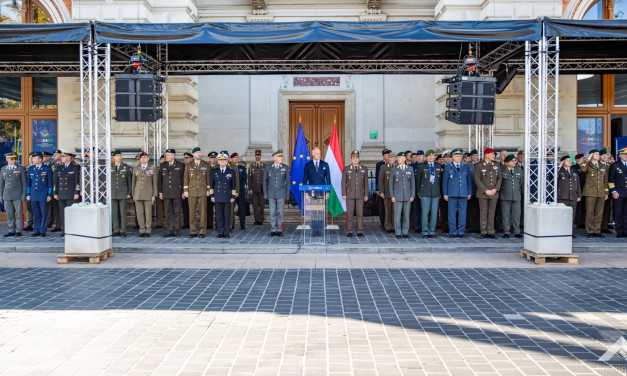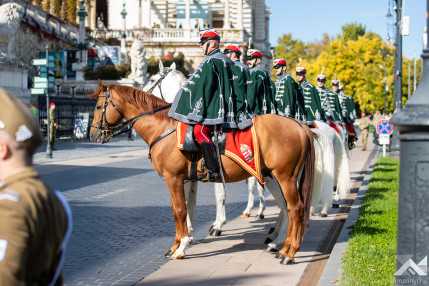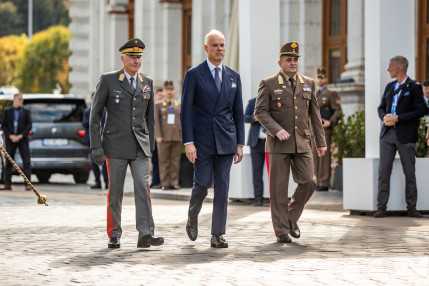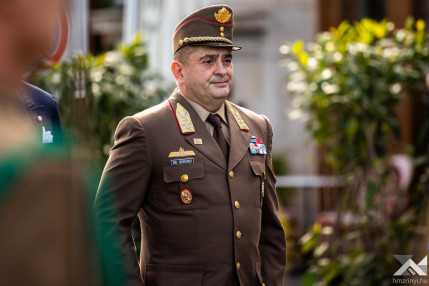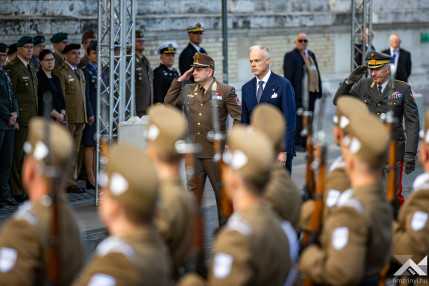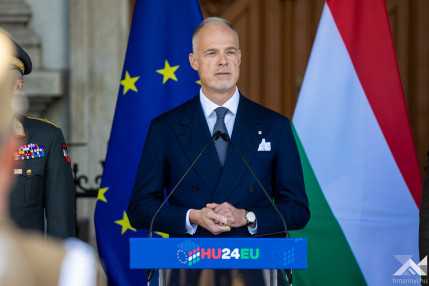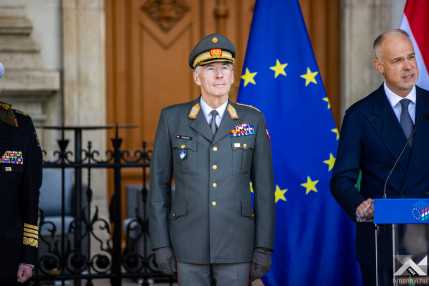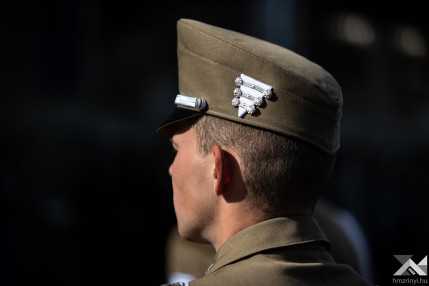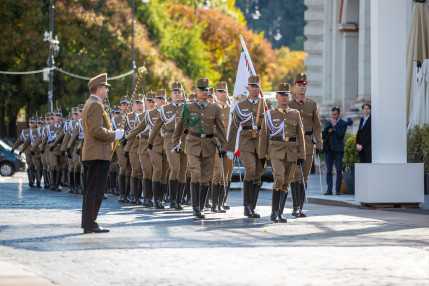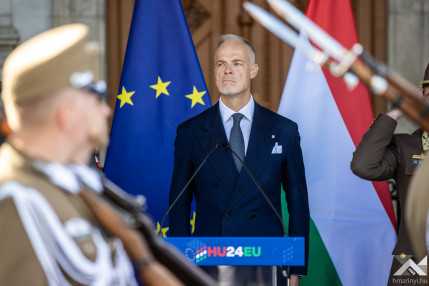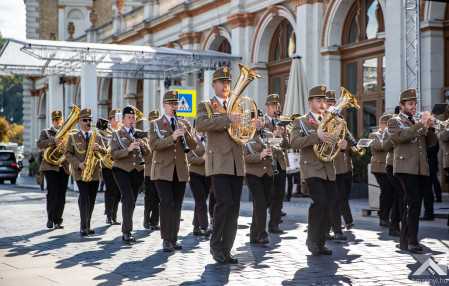Hungary feels the weight of history
The European Union Military Committee holds its session in Hungary
Text: Márton Mészáros Navarrai | Photo: Ákos Pintér | 13:40 October 15, 2024Hungary is aware of the terrible human and material costs of war – stated Defence Minister Kristóf Szalay-Bobrovniczky at the session of the European Union Military Committee (EUMC) at Chiefs of Defence level in Castle Garden Bazaar, Budapest on Monday, 14 October.

Kristóf Szalay-Bobrovniczky said that since World War II, the 1956 Revolution and Freedom Fight and the communist era have brought devastation beyond recognition in certain parts of Budapest; moreover, the past is living with us, as we find WWII bombs time after time in the capital city, so all our reflections are based on our living experience.
Relating the history of Castle Garden Bazaar, the venue of the session, which was originally built between 1875-1883 by the plans of Miklós Ybl, Kristóf Szalay-Bobrovniczky reminded his audience that Europe cannot afford another destructive war.
Speaking about the deteriorating security situation in Europe, the minister told the foreign delegations that the focal point of this situation is the Russo-Ukrainian War, which, “in the current political fervor will push us to an irreversible and catastrophic escalation, should everything to prevent it does not happen”.

The minister of defence reminded the highest military body of the Council of the European Union that “the very heavy and substantial military aid [to Ukraine] and the economic sanctions have not changed the course of this war” that broke out two and a half years ago. “Neither the aggressor, Russia, or the defending Ukraine are stopping the fight. So, peace has to be forged. Peace has to be made, peace has to be created, and it can only happen through diplomatic solutions, diplomatic channels.”
According to him, the Western Balkans has historically been and remains to be a very critical point for Europe as a whole. Speaking about the enlargement policy of the EU on the Western Balkans, he stated that “Europe has to stay determined to carry on with the accession talks of the Western Balkan countries. Hungary remains to be very committed to this part of the world. There is the largest NATO mission in Kosovo, where Hungary is one of the largest troop contributors. And EUFOR Althea, is currently commanded by Hungarian General László Sticz PhD, in Bosnia and Herzegovina.”
Kristóf Szalay-Bobrovniczky condemned the hopeless situation due to the war in the region of the Middle East, and went on speaking about the wave of migration that is partly caused by attacks by the Iran-backed Houthi rebels in Yemen targeting commercial corridors on the Red Sea. As he said, “we need to stem the risk of mass migration at the source, together with all its undesirable consequences. This is our adopted strategy. So, we not only suggest it to others, but we also do ourselves. We bring complex support and aid to many of the regions, but very specifically to Africa and the Sahel region, which is one of the sources of illegal migration.”

He underlined that “it is one of the most important focal points of our entire EU presidency to make sure that Europe really builds up a substantial force to be able to defend itself”, and went on pointing out that Hungary had already launched a comprehensive development and modernization program of the armed forces in 2016. “We have put the necessary financial and other resources behind this program, which affects both the military, all branches of it, and the defence industry. We reached the 2% NATO requirement already last year”, he said.
Kristóf Szalay-Bobrovniczky – who called for similar professional conferences of defence ministers of the EU and NATO in his speech – firmly stated that what Europe needs is a strong unity based on sovereign nation-states.

In his speech, Chairman of the EUMC Austrian General Robert Brieger spoke highly of the Hungarian hosts, noting that the organization has achieved a lot of positive changes since its last session in May. He said that “The European Union currently runs two military training missions, three military assistance or partnership missions as well as four operations. In total, we have almost 4,000 EU soldiers deployed serving and promoting peace and stability. With the new military assistance mission in support of Ukraine, the European Union has trained more than 60,000 Ukrainian soldiers”.
According to the EUMC Chairman, the European Union must become more flexible, competitive and resilient than it is now, so that it can become even more successful in the future. He underlined that “the overall situation demands a lot from European Union, its citizens, and its militaries”. As he pointed out the CHODs present at the EUMC sessions must set clear directions, and ask themselves what the next step should be to protect freedom, security and prosperity for all Europeans. “Keeping in mind what is at stake, we will review the framework to operate, especially in three geographical areas that are of crucial interest to the EU: in the Northwest Indian Ocean, in Ukraine, which is the eastern border of Europe, and in the Western Balkans.”
General Robert Brieger pointed out that they must inevitably deal with the situation of the European defence industry, mainly because it has been underinvested and fragmented for too long. Speaking about the rapid deployment capability of the European Union generated this year, he stated that the independent EU force will have up to 5,000 deployed troops as from the end of this year or the beginning of next year. “In my assessment, the question of activating the EU rapid deployment capability for the first time is not »if«, but rather »when«” – stated the Chairman of the European Union Military Committee.













